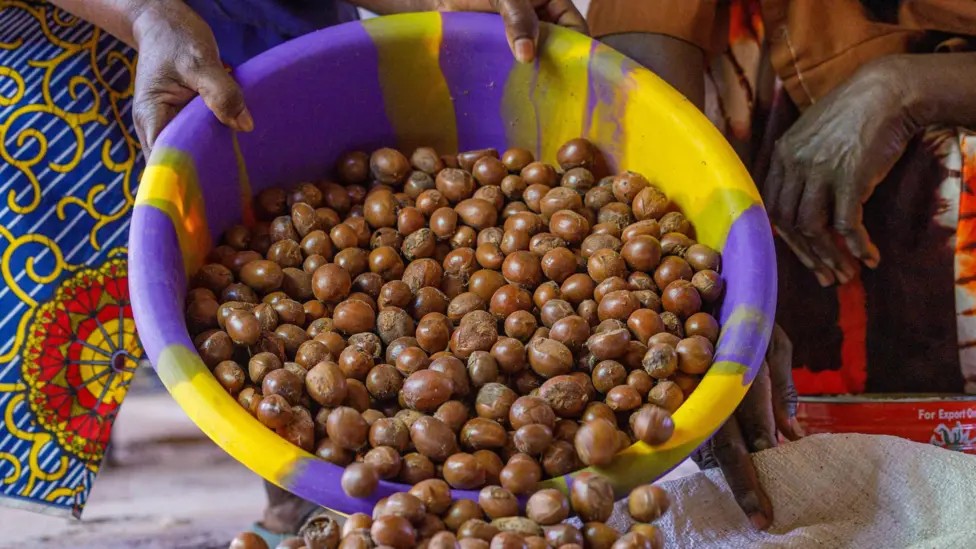Nigeria Halts Shea Nut Exports in Bold Move to Boost Local Industry
- by Muhammed, Abuja, RNG247
- about 13 days ago
- 77 views

In a groundbreaking decision that could reshape the global beauty industry, Nigeria has announced a six-month ban on the export of raw shea nuts, a crucial ingredient in many popular beauty creams. This strategic move, unveiled by Vice-President Kashim Shettima, aims to transform Nigeria's role in the shea market from a mere exporter of raw materials to a major supplier of refined shea products.
The decision comes as a response to Nigeria's current underperformance in the global shea market. Despite producing nearly 40% of the world's annual shea crop, the country accounts for a mere 1% of the $6.5 billion global market. Vice-President Shettima labeled this situation as "unacceptable," emphasizing the need for change.
Shea butter, extracted from the nuts of shea trees, is a prized ingredient in cosmetics, food products like chocolate and ice cream, and even pharmaceuticals. The process of creating shea butter involves crushing, roasting, and boiling the harvested fruit to extract its valuable oil.
The shea industry holds particular significance for rural communities, especially women, who are often involved in small-scale farming and harvesting of shea trees. These trees grow naturally across the "shea belt," a vast strip stretching from West to East Africa.
Vice-President Shettima underscored the multifaceted benefits of this export ban, stating, "It is about industrialization, rural transformation, gender empowerment, and expanding Nigeria's global trade footprint." The government's short-term goal is to increase Nigeria's annual earnings from shea products from $65 million to an impressive $300 million.
Agriculture Minister Abubakar Kyari revealed that Nigeria produces approximately 350,000 tonnes of shea nuts annually. However, nearly 25% of this harvest is lost to unregulated informal trade across borders, highlighting the need for better industry oversight.
Dr. Ahmed Ismail, an agriculture expert from the Federal University of Minna, praised the government's decision as a "bold step that should have been taken long ago." He emphasized the potential for job creation and increased government revenue through local refining processes.
The ban is expected to address the exploitation of farmers who, unaware of the true value of their crop, often sell their harvest at low prices to opportunistic buyers. By encouraging local processing and refining, the government hopes to ensure fairer compensation for farmers and boost the overall value of Nigeria's shea industry.
As the world watches, Nigeria's temporary ban on shea nut exports could serve as a catalyst for significant change in the global beauty and food industries. If successful, this move could set a precedent for other resource-rich nations looking to maximize the value of their natural commodities.
















0 Comment(s)